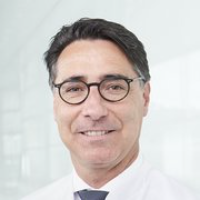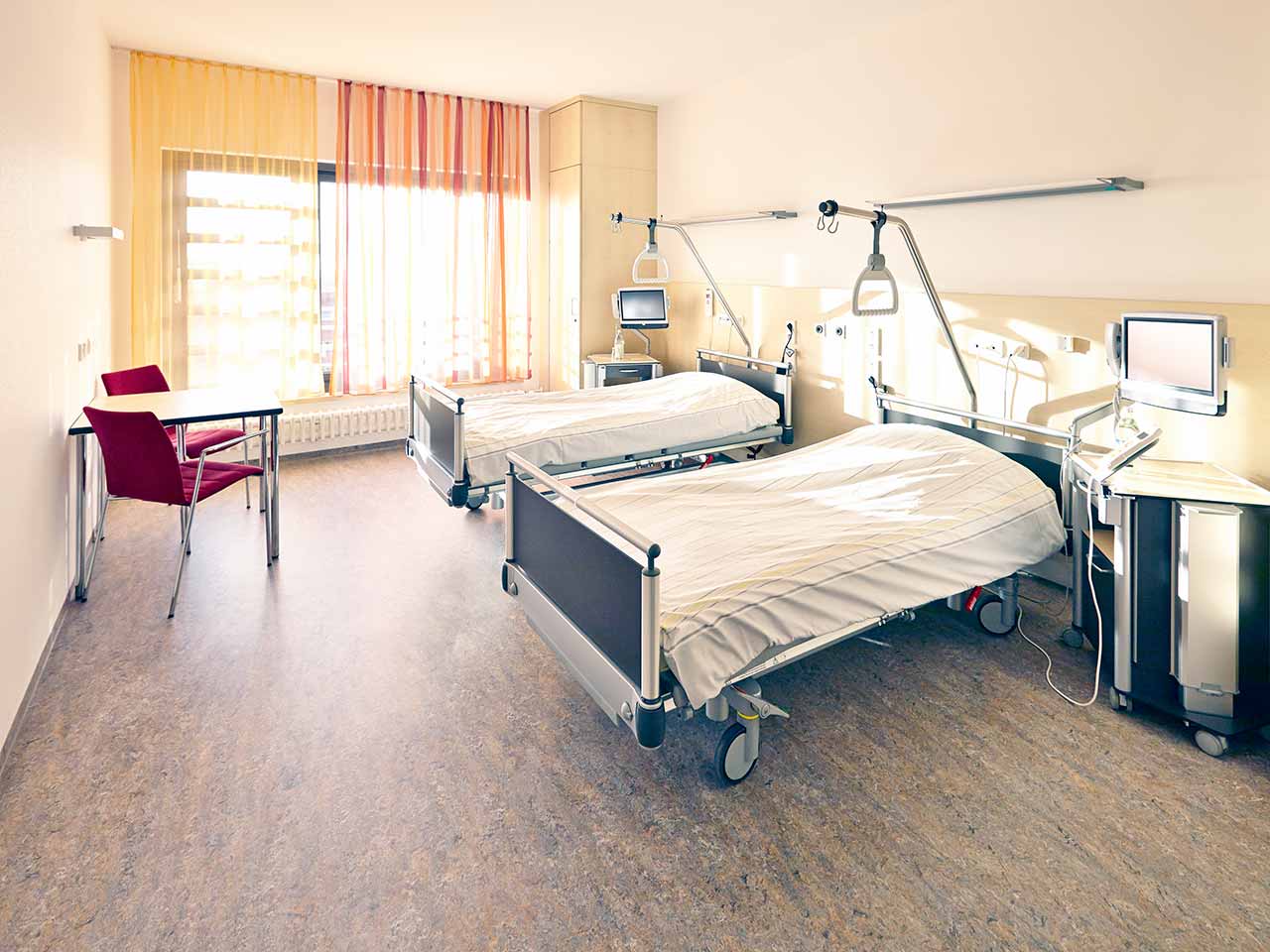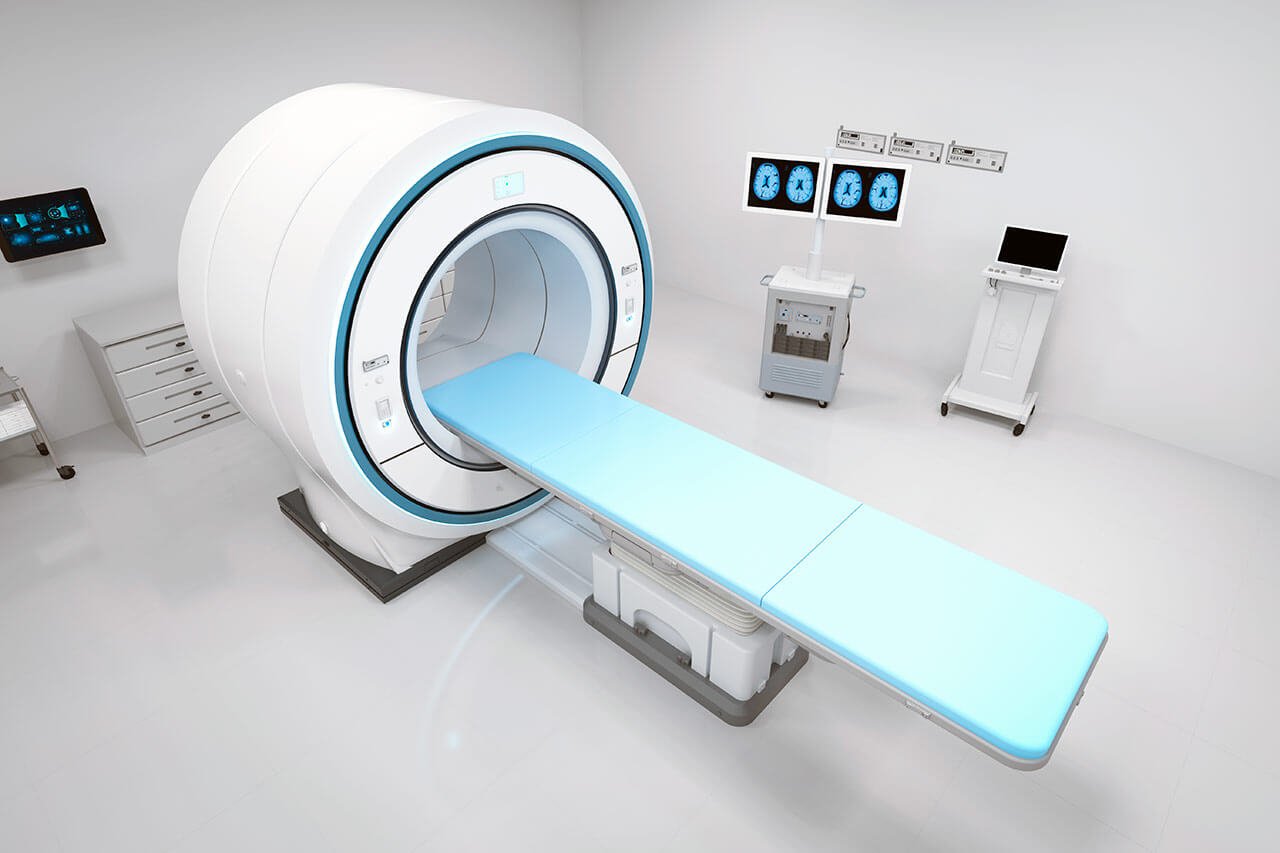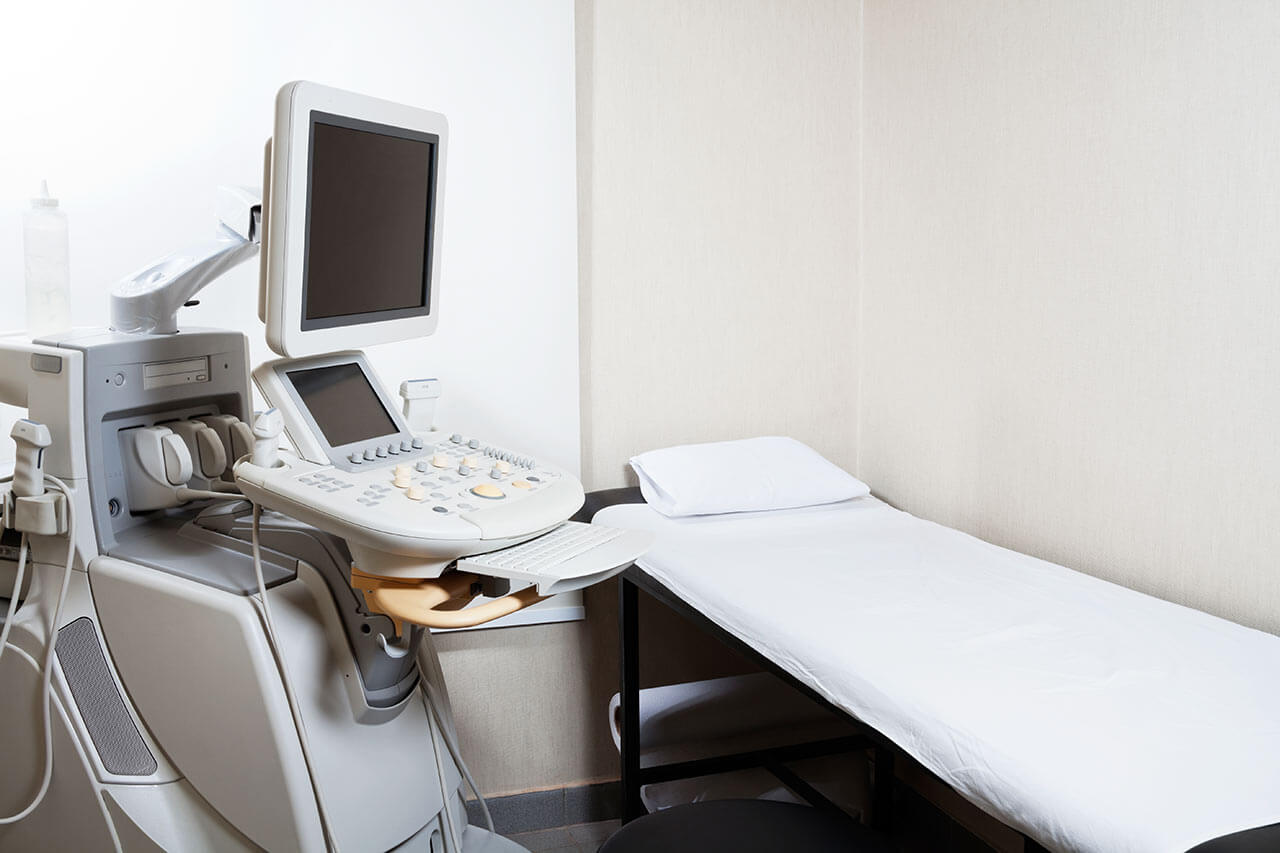
About the Department of Cardiology and Angiology at University Hospital Ulm
The Department of Cardiology and Angiology at the University Hospital Ulm offers the full range of medical services in the areas of its specialization. The medical facility holds consultations and carries out the diagnostics and treatment of diseases of the heart and blood vessels. The department's team of cardiologists focuses on patients with valvular heart disease, heart rhythm disturbances, coronary artery disease, heart failure, and congenital heart disease. The department has a Chest Pain Unit certified by the German Cardiac Society (DGK) for the treatment of acute coronary syndrome. In the field of angiology, of key interest is the treatment of peripheral arterial occlusive disease, vascular stenosis of various locations, including carotid artery stenosis, and deep vein thrombosis. During the treatment of diseases of the heart and blood vessels, the department’s specialists use various drug therapy regimens and perform image-guided interventional procedures. The medical facility has been recognized with quality certificates for transcatheter aortic valve implantation (TAVI) and treatment of heart failure and mitral valve disease. Patients are treated by highly qualified physicians who strive to restore the patient's health using sparing treatment methods. The Head Physician of the department is Prof. Dr. med. Wolfgang Rottbauer.
The department is a leader in catheter-based treatment of valvular heart disease. Aortic valve stenosis is one of the most common heart valve defects. Cardiac pathology causes a significant increase in the workload on the left ventricle of the heart, as a result of which its pumping function is affected. Patients with this disease suffer from dizziness, fainting, increased fatigue, and pain in the heart and behind the sternum. Without surgery for aortic valve stenosis, the patient is at risk of sudden cardiac death. Until 2005, aortic valve replacement surgery was performed under general anesthesia using a heart-lung machine.Today, cardiologists employ sparing catheter-based techniques, which have become the standard method for treating many heart pathologies. The department's specialists successfully perform transcatheter aortic valve implantation (TAVI) to replace the stenosed aortic valve. An artificial aortic valve is delivered to the patient's heart through a small puncture in the inguinal artery with the help of a catheter under imaging guidance. It is implanted in the desired position (the patient's own heart valve is not removed). Numerous studies show that transcatheter aortic valve implantation significantly reduces the risk of complications and increases survival rates. Prior to the intervention, cardiac CT, heart ultrasound, and catheterization of the heart chambers are performed to determine the size and type of the valve. The TAVI procedure is performed in a hybrid operating room with state-of-the-art medical equipment.
The second most common heart valve defect is mitral regurgitation. This disease causes incomplete closure of the mitral valve, due to which some blood flows back into the left atrium during ventricular systole. Mitral regurgitation causes symptoms such as coughing, shortness of breath (including at rest), and leg swelling. In the long term, heart failure may develop. Until recently, the only effective treatment method for the pathology was open surgery, but in 2008, an innovative catheter-based technique called MitraClip was implemented into clinical practice. This procedure allows for the treatment of mitral regurgitation without thoracotomy. It should be noted that the department is one of the most experienced German centers specializing in the treatment of mitral regurgitation using the MitraClip technique, and more than 500 interventions of this kind have been performed here. The MitraClip procedure is performed in a modern hybrid operating room under general anesthesia and imaging guidance. The heart is approached through a puncture in the femoral artery.
The department's team of cardiologists is constantly exploring new, progressive treatment methods. For instance, their longstanding research in treating arrhythmias has borne fruit: the department's specialists were the first in the world to perform an interventional procedure using cryoballoon for atrial fibrillation treatment. The department is proud to offer this innovative treatment method to patients with atrial fibrillation.
The department also provides the full range of services for treating vascular diseases. The team of angiologists regularly performs interventional treatment for peripheral arterial occlusive disease, thrombosis, carotid artery stenosis, and inflammatory vascular lesions, including those caused by rheumatic diseases. The most effective treatment method for vascular stenosis is balloon angioplasty with stent implantation. The interventional procedure is most often performed under local anesthesia. The results of balloon angioplasty are comparable to the results of open surgery. For the treatment of peripheral arterial occlusive disease, the department's specialists often perform catheter atherectomy, the essence of which is the removal of atherosclerotic plaques from the blood vessel. The department's doctors have at their command effective sparing treatment methods for acute thromboses, such as rotational thrombectomy, aspiration thrombectomy, and thrombolytic therapy.
The department's main clinical focuses include:
- Cardiology
- Diagnostics and treatment of valvular heart disease
- Transcatheter aortic valve implantation (TAVI) for aortic valve stenosis
- MitraClip procedure for mitral regurgitation
- Diagnostics and treatment of heart rhythm disturbances
- Interventional procedures using cryoballoon for atrial fibrillation
- Pacemaker implantation
- Implantable cardioverter-defibrillator placement
- Catheter ablation for tachycardia
- Left atrial appendage closure for atrial fibrillation
- Diagnostics and treatment of coronary artery disease
- Coronary stenting
- Rotational atherectomy
- Coronary artery recanalization
- Diagnostics and treatment of heart failure
- Drug therapy
- Catheter-based interventions
- Diagnostics and treatment of congenital heart disease in adults
- Drug therapy
- Catheter-based interventions
- Diagnostics and treatment of valvular heart disease
- Angiology
- Diagnostics and treatment of peripheral arterial occlusive disease
- Balloon dilatation with stent implantation
- Catheter atherectomy
- Diagnostics and treatment of thrombosis
- Rotational thrombectomy
- Aspiration thrombectomy
- Thrombolytic therapy
- Diagnostics and treatment of carotid artery stenosis
- Balloon angioplasty with stent implantation
- Diagnosis and treatment of inflammatory vascular lesions caused by rheumatic diseases
- Drug therapy
- Diagnostics and treatment of peripheral arterial occlusive disease
- Other medical services
Curriculum vitae
Higher Education and Professional Career
- 1987 - 1989 Medical studies, Faculty of Medicine, University of Regensburg.
- 1989 - 1994 Medical studies, Faculty of Medicine, Julius Maximilian University of Wuerzburg.
- 1992 - 1993 Research Fellowship, Faculty of Medicine, Columbia University, New York, USA.
- 1994 Thesis defense in Cardiology, Julius Maximilian University of Wuerzburg.
- 1994 - 1997 Resident and Research Fellow, Department of Cardiology, University Hospital Heidelberg.
- 1997 - 1998 Resident and Research Fellow, Department of Cardiology, University Hospital Luebeck.
- 1998 - 2002 Postdoctoral Fellowship, Harvard Medical School, Massachusetts General Hospital, Cardiovascular Research Center.
- 2002 - 2008 Head of the Molecular Genetics Group, University of Heidelberg.
- 2004 - 2006 Board certification in Internal Medicine and Cardiology.
- 2004 Attending Physician, Department of Cardiology, University Hospital Heidelberg.
- 2008 Deputy Head Physician, Department of Cardiology, University Hospital Heidelberg.
- Since 2010 Head Physician, Department of Cardiology and Angiology, University Hospital Ulm.
Grants and Awards
- 1998 - 2000 Research Grant from the German Research Foundation (DFG).
- 2000 - 2002 Training Grant from the American Heart Association (AHA).
- 2003 Oskar Lapp Prize from the German Cardiac Society (DGK).
- 2003 - 2005 Hengstberger Research Grant from the German Cardiac Society (DGK).
Photo of the doctor: (c) Universitätsklinikum Ulm






